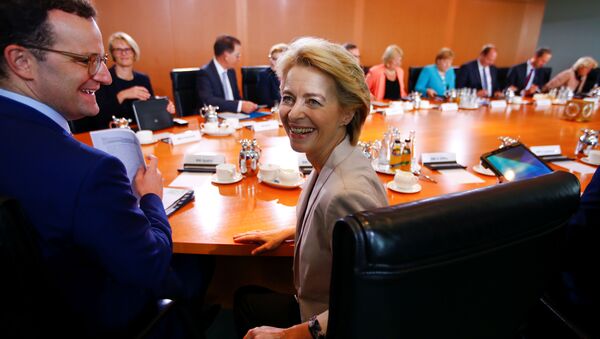Incoming European Commission President Ursula von der Leyen has managed to stoke significant controversy before even taking up the post for renaming the ‘Commission Vice-President for Migration and Skilled Labour’ the minister for ‘Protecting Our European Way of Life’.
Scheduled to assume office 1st November, von der Leyen – elected by one of the narrowest margins in history - has put the change among others to Parliament, who will approve or rebuff her chosen “college” of commissioners.
Whether she will secure the requisite support appears extremely questionable given many MEPs have expressed disquiet over the change. For instance, UK Labour MEP Claude Moraes, former chair of the European parliament’s justice and home affairs committee, said the "deeply insulting" title cannot stand, telling the Guardian he and his fellow Socialist MEPs were "very upset and alarmed".
— Claude Moraes (@Claude_Moraes) September 10, 2019
“There was absolute, complete condemnation,” he fulminated, speaking after a group meeting 12th September, "If [the title] survives then we are in a bad position as progressives, because it is an embarrassment for us."
— ©️as Mudde (@CasMudde) September 11, 2019
— Alberto Alemanno (@alemannoEU) September 10, 2019
— Christian May (@ChristianJMay) September 10, 2019
Margaritis Schinas, the vice-president given the role, is yet to add the title to his Twitter biography, instead describing himself as commissioner-designate – he was previously the commission’s chief spokesperson until appointed Greece’s European commissioner. One of the most senior members of the new commission, Maros Sefcovic, has already declined to back his new boss on the job title. The move has also provoked significant anger on social media.
Schinas’ was not the only title to be received with raised eyebrows - Valdis Dombrovskis will resume his work on EU financial stability, but with the title of vice-president for “an economy that works for people”. The commission will also have vice-presidents for “a stronger Europe in the world”, “a Europe fit for a digital age” and “democracy and demography”.


